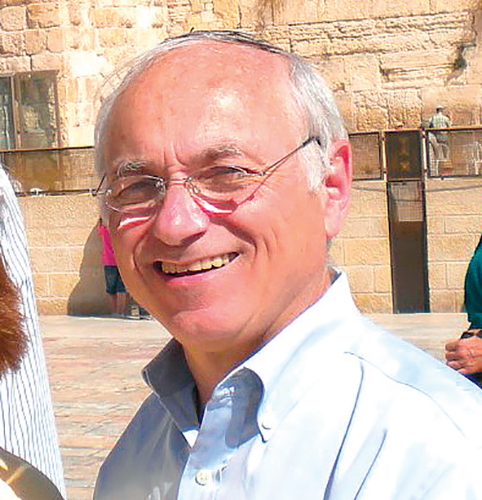
New York—As controversy continues to swirl around the Novominsker Rebbe’s public condemnation of Open Orthodoxy at the recent Agudah Dinner, a Modern Orthodox rabbi and author of a popular blog on Orthodox Jewish thought has publicly expressed his own assessment of Open Orthodoxy, agreeing that it is inconsistent with Orthodox Judaism.
Rabbi Harry Maryles, a Chicago resident who writes the blog “Emes V’emunah,” said that despite the fallout from Rabbi Perlow’s remarks, there are times when it is imperative to speak out. “There has been a lot of negative reaction, but sometimes you have to stand up and say the truth,” Maryles told VIN News. “When Torah hashkafa is being called into question, you can’t let it go unchallenged.”
As previously reported on VIN News, Rabbi Perlow had harsh words for Open Orthodoxy, likening it to the Conservative and Reform movements and calling it heresy. Maryles, who was in Rabbi Perlow’s 12th-grade shiur at Beis Medrash L’Torah in Skokie, Illinois, believes that there are two components that are integral to being an Orthodox Jew. One is the belief system, believing that the events in the Torah actually happened. The second is following the mitzvos. Those are the two things that make you Orthodox.
Of particular concern to Maryles are public statements made by proponents of Open Orthodoxy, including Rabbi Zev Farber, a graduate of Yeshiva Chovevei Torah.
“After studying bible critics, he very strongly questioned whether events in the Torah actually happened and said that they were allegorical,” said Maryles. “No Torah was given at Sinai. Moshe Rabbeinu didn’t exist. The Avos didn’t exist. His understanding of the Torah is that it was an unfolding revelation and that while the bible is divinely inspired, the actual events described couldn’t have happened. This is apikorsus and has be to labeled as that.”
Allowing for the possibility that the events in the Torah didn’t actually take place puts Open Orthodoxy in the same category as Conservative Judiasm, says Maryles.
“Conservatives don’t require you to believe in biblical criticism, but they consider it legitimate and Open Orthodoxy is doing the same thing,” noted Maryles. “In terms of theology they are the same. That is kefira and violates at least some of the 13 ikarim of the Rambam, which we have accepted as the basis of our faith for generations.”
Rabbi Asher Lopatin, president of Yeshiva Chovevei Torah, which describes itself as an open Modern Orthodox rabbinical school, invited Rabbi Perlow to further discuss the issue at hand.
“I welcome the Novominsker into the conversation of how all of us Orthodox Jews can bring the light of Torah to all Jews, in a meaningful way,” said Rabbi Lopatin. “Yes, the Novominsker Rebbe’s words were harsh, especially for a fellow Chicagoan, but I hope it can lead to a healthy engagement and discussion. We at Yeshiva Chovevei Torah, our talmidim and musmachim, are ready to learn from and listen to all who have a Torah message. That is what inclusive, passionate, and Modern Orthodoxy is all about.”
Maryles said that his rejection of Open Orthodoxy has not necessarily been well received by all.
“I have gotten a lot of flak from my friends on the left, but I have to speak the truth. Proponents of Open Orthodoxy claim that they believe in the Torah but they allow someone like Zev Farber to be a member in good standing and they allow the negation of events in the Torah as part of their theology. You can’t do that and still call yourself Orthodox.”
While there were those who advised him to stay silent, saying that his statements would alienate those who currently consider themselves to be Open Orthodox, but might one day step up their religious observance and beliefs, Mayles stated, “You can’t accept kefira as a method of kiruv.”
Maryles declined to comment on whether or not the Agudah dinner was the proper venue for the Novominsker’s attack on Open Orthodoxy, although he agreed that with the secular media in attendance, it might not have been the best time to take on this topic.
“I am not going to second guess or criticize the Rebbe,” said Maryles. “I am not in a position to criticize someone of his stature, but as a leading rabbi in America he has a right to speak out.”
By Sandy Eller (This appeared first in Vosizneiz.com, reprinted with permission.)










